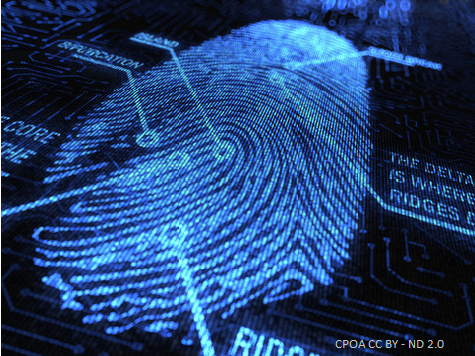The new National ID Cards (DNI) in Argentina: more intelligent?
by Digital Rights LAC on July 30, 2014
Already by 2001, especially for a world that looked overwhelmed by the events of September 11th, new technologies settled alarm among privacy and civil rights advocacy groups, concerned by the fact that citizens would be forced to give too much information to participate in social life.
By Emiliano Villa *
The constant voltage between security and privacy makes us reconsider which must be the reasonable limits against data requirements – physical and biological- that daily either states and private ask for individuals, reinforcing a threat that is far to decrease over time. What to say, for example, before biometric data that can be useful for establishing distinctions between some ethnic groups and others, or even sort certain persons by religion. Rightly, the Dutch philosopher Van der Ploeg noted by 1999 that if these technologies where implemented indiscriminately, the body, in some sense, it would be sold under a stigma, the sign of the flesh, and continued, “signs, on the other hand, that would turn the individual body into a witness against them” .
Recently, the Argentine Interior Ministry announced the signing of an agreement with the Royal Mint of Spain for the national identity of the country to incorporate more technology. It was announced that the new DNI will have a double chip too enable not only identify people as before, but also interact with public and private services, among them, National Social Security Administration (ANSES) data, medical history, and even public transportation trips made using SUBE, a government-issued card for subsidized fares which tracks every trip a person does (paid with the card) and are recorded in a database controlled by the Ministry of Transport.
Given this measure, organizations such as the Asociación por los Derechos Civiles (ADC) y Fundación Vía Libre issued a statement questioning the intentions of the Argentine government to incorporate a chip to National Identity Cards. They pointed out that “public policies in this area should be informed by a vision of human rights that today seems absent” and that such development “is unnecessary and totally disproportionate in connection with the data the system will collect from each inhabitant of the country”.
Identification Policies can’t be left to the government in power and stripped of control. It looks like the Argentine State wants greater intrusion policies around collection of personal data of citizens at no cost. And this look can throw very risky results in terms of infringement of rights. The vision that seems to prevail in the Argentinean State that any technological ‘progress’ is desirable in itself should be reviewed and served on fundamental constitutional principles, such as the right to intimacy and privacy.
The actual recognition of this right presupposes the minimum prerequisites for everyone to develop their individuality with absolute freedom, free from interference. Is such as Judge Cooley stated more than a century ago, the right of every individual “to be let alone” .
If the purpose of national identity, as its name suggests, is to identify people, all information added will become an intrusion into the sphere of intimacy that every individual deserves preserving for itself, and it will be by definition unnecessary. From this point, is the State who will bear the responsibility for the risks that may be generated by the indiscriminate use of information, that as has been developed so far is not only futile but of remarkable sensitivity.
* Emiliano Villa serves as a lawyer in the Privacy Area at Asociación por los Derechos Civiles (ADC).
Twitter: @villaemiliano
¹Van der Ploeg, I, ‘The Illegal Body: “Eurodac” and the Politics of Biometric Identification,’ Ethics
and Information Technology, pgs. 295-302, 1999.
²Thomas M. Cooley, The Law of Torts 29 (2d ed. 1888).






